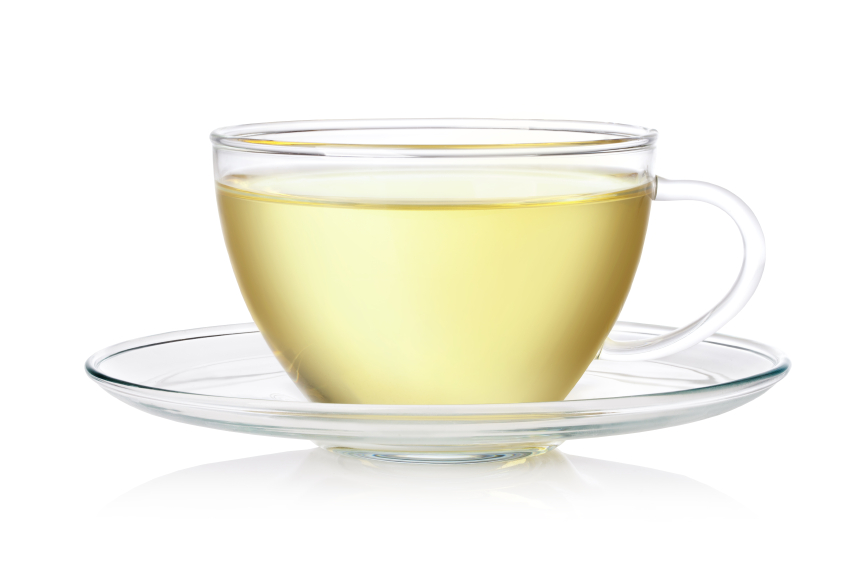“Tea began as a medicine and grew into a beverage,” said Kakuzo Okakura in his Book of Tea in 1906.
Traditional Chinese medicine practitioners have prescribed herbal and caffeinated teas for thousands of years. And modern research confirms their natural healing power. Unlike pharmaceuticals, tea has few, if any, side effects.
Here are five health problems you can solve with tea:
1. High Blood Pressure: Studies show drinking hibiscus tea for one month can lower systolic blood pressure (top number) by about 20 points. It may even work better than lisinopril—a common blood pressure medication.1 That’s in people with mildly to moderately high blood pressure.
Two 8-ounce servings of organic hibiscus tea a day is all you need.2
Recommended for You: Lower Blood Pressure From Your Kitchen
The tasty vegetable that researchers found lowered blood pressure by five points… The “unhealthy” food that the Huffington Post agrees works the same way as ACE inhibitors to control BP and reduce the risk of heart attack…
What do these—and a handful of other—natural blood pressure fighters have in common? For one, most you’ll find in your kitchen. But more important, they’re backed by real, scientific studies. Find out more HERE.
2. Tension Headaches: Research shows tea can be just as effective as ibuprofen at making headaches disappear. But it works 30 minutes faster…and without the risk of stomach bleeding.3 The active ingredient? Caffeine.
Headaches are often triggered when the blood vessels in your head enlarge. Caffeine counters this by causing the vessels to constrict.4
Organic black teas are your best option for tension headache relief. They have the most caffeine of any tea—up to 90 mg per 8-ounce cup. Depending on your tolerance, you may need anywhere from half a cup to more than two cups for relief. Just don’t overdo it. Too much caffeine can aggravate a budding headache.
3. Allergies: Over-the-counter and prescription allergy meds cause dry mouth, dizziness, and headaches. But stinging nettle tea is a safe, effective natural alternative that treats symptoms without side effects. It works by preventing the release of histamine when you’re having an allergic reaction. This stops symptoms like skin hives and nasal congestion before they start.
For added congestion-fighting benefits, steep organic nettle tea with soothing organic peppermint. You can find blends with both online and in most grocery stores.
4. Stress: An amino acid in green tea called l-theanine induces a sense of calm. Green tea, which has just small amounts of caffeine, is excellent for reducing stress without putting you to sleep. Zen Buddhist monks drink it to remain tranquil yet alert during long meditation sessions.5
One study found that people who took 200 mg of l-theanine before taking a test were less anxious. It lowered their heart rate and reduced levels of a stress marker found in the saliva.
Use only organic whole-leaf green tea. Oolong is the variety highest in l-theanine.6 Steeping leaves for a minute or two extra will ensure you’re getting the most l-theanine you can in each cup. But leave out milk or cream. It lowers l-theanine content.
5. Insomnia: Since the Middle Ages, lemon balm has been a go-to herb to reduce stress and encourage sleep.7 In one study, insomnia vanished completely for 85% of the people who took a lemon balm extract called Cyracos®.8 They took 600 mg a day.
You can get the same benefits with lemon balm tea. Enjoy a cup of quality organic whole-leaf lemon balm tea about an hour before bed. Steep it for 10 minutes or more to get a therapeutic dose.
The calming ritual of sipping warm tea adds to the relaxing effects of this herb.
Do you use tea to conquer nagging health issues? What kind do you drink and for what? Let us know in the comments section below.
In Good Health,

Angela Salerno
Executive Director, INH Health Watch
Like this Article? Forward this article here or Share on Facebook.
References:
1https://www.thieme-connect.de/DOI/DOI?10.1055/s-2006-957065
2http://www.nature.com/jhh/journal/v23/n1/full/jhh2008100a.html
3http://www.dailymail.co.uk/health/article-81108/Why-cup-tea-cure-headaches.html
4http://www.headaches.org/2009/07/24/does-caffeine-trigger-or-treat-headaches/
5http://www.telegraph.co.uk/foodanddrink/3334037/Its-healthy-to-live-like-a-monk.html
6http://healthyeating.sfgate.com/black-tea-ltheanine-12266.html
7https://umm.edu/health/medical/altmed/herb/lemon-balm
8http://www.ncbi.nlm.nih.gov/pmc/articles/PMC3230760/

